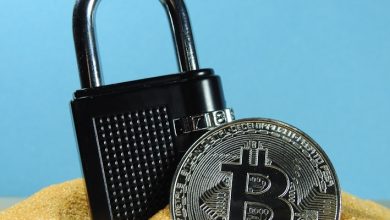How to Protect Your Cryptocurrency from Hacks

- Understanding the risks of cryptocurrency hacks
- Best practices for securing your digital wallet
- Choosing the right security measures for your cryptocurrency
- Tips for creating strong and unique passwords for your accounts
- The importance of two-factor authentication in safeguarding your assets
- How to stay vigilant against phishing attacks in the world of cryptocurrency
Understanding the risks of cryptocurrency hacks
Cryptocurrency hacks are a major concern for anyone involved in the digital currency market. These hacks can result in significant financial losses, identity theft, and other serious consequences for users. It is important to understand the risks associated with cryptocurrency hacks in order to protect your investments and personal information.
One of the main risks of cryptocurrency hacks is the potential for hackers to gain access to your digital wallet. Once they have access, hackers can steal your cryptocurrency without leaving a trace. This can result in a complete loss of your investment and can be difficult, if not impossible, to recover.
Another risk of cryptocurrency hacks is the potential for hackers to intercept your transactions and manipulate them for their own gain. This can result in the loss of funds or the compromise of sensitive information. It is important to be vigilant when making transactions and to use secure networks and platforms to minimize the risk of interception.
Additionally, cryptocurrency hacks can also result in the theft of your personal information. Hackers can use this information to commit identity theft, fraud, and other crimes. It is important to protect your personal information at all costs and to use secure passwords and encryption methods to keep your data safe.
In conclusion, understanding the risks of cryptocurrency hacks is crucial for anyone involved in the digital currency market. By taking steps to protect your investments and personal information, you can minimize the risk of falling victim to hackers and ensure the security of your cryptocurrency holdings.
Best practices for securing your digital wallet
When it comes to securing your digital wallet, there are several best practices that can help protect your cryptocurrency from hacks. By following these guidelines, you can minimize the risk of unauthorized access to your funds and keep your investments safe.
- Use a hardware wallet: Hardware wallets offer an extra layer of security by storing your private keys offline. This makes it much harder for hackers to access your funds remotely.
- Enable two-factor authentication: Two-factor authentication adds an extra step to the login process, requiring you to enter a code sent to your phone or email. This can help prevent unauthorized access even if your password is compromised.
- Keep your software up to date: Developers regularly release updates to fix security vulnerabilities. By keeping your wallet software up to date, you can ensure that you have the latest security patches installed.
- Avoid public Wi-Fi: Public Wi-Fi networks are often insecure, making it easy for hackers to intercept your data. When accessing your digital wallet, make sure to use a secure connection to prevent unauthorized access.
- Backup your wallet: In case your device is lost or damaged, it’s important to have a backup of your wallet. Store this backup in a secure location, such as a safe deposit box, to ensure that you can always recover your funds.
By following these best practices, you can significantly reduce the risk of your cryptocurrency being stolen. Remember that it’s always better to be safe than sorry when it comes to securing your digital assets.
Choosing the right security measures for your cryptocurrency
When it comes to protecting your cryptocurrency from hacks, it is crucial to choose the right security measures. There are various options available, each with its own strengths and weaknesses. One popular choice is using a hardware wallet, which is a physical device that stores your private keys offline. This adds an extra layer of security, making it more difficult for hackers to access your funds. Another option is to use a multi-signature wallet, which requires multiple signatures to authorize a transaction. This can help prevent unauthorized access to your funds, as hackers would need to compromise multiple accounts.
Additionally, using strong passwords and enabling two-factor authentication can help further secure your cryptocurrency. It is important to regularly update your passwords and use unique combinations of letters, numbers, and symbols to make them harder to crack. Two-factor authentication adds an extra step to the login process, requiring a code sent to your phone or email to access your account. This can help prevent unauthorized access even if your password is compromised.
Furthermore, staying informed about the latest security threats and best practices is essential in protecting your cryptocurrency. By keeping up to date with news and developments in the industry, you can better understand the risks involved and take appropriate precautions. It is also recommended to use reputable exchanges and wallets, as they are more likely to have robust security measures in place. Remember, the security of your cryptocurrency ultimately depends on the measures you take to protect it. By implementing the right security measures, you can reduce the risk of hacks and keep your funds safe.
Tips for creating strong and unique passwords for your accounts
To protect your cryptocurrency from hacks, it is crucial to create strong and unique passwords for all your accounts. Here are some tips to help you enhance the security of your passwords:
- Include a mix of uppercase and lowercase letters.
- Use numbers and special characters.
- Avoid using easily guessable information such as your name, birthdate, or common words.
- Consider using a passphrase instead of a single word.
- Do not reuse passwords across different accounts.
By following these tips, you can significantly reduce the risk of your cryptocurrency being compromised by malicious actors. Remember, the strength of your passwords plays a crucial role in keeping your digital assets safe and secure.
The importance of two-factor authentication in safeguarding your assets
Two-factor authentication (2FA) is a crucial security measure in protecting your cryptocurrency assets from potential hacks. By requiring users to provide two different forms of identification before accessing their accounts, 2FA adds an extra layer of security beyond just a password. This makes it much more difficult for hackers to gain unauthorized access to your funds.
How to stay vigilant against phishing attacks in the world of cryptocurrency
When dealing with cryptocurrency, staying vigilant against phishing attacks is crucial to protect your investments. Phishing attacks are a common tactic used by hackers to steal sensitive information such as login credentials and private keys. Here are some tips to help you stay safe:
- Be cautious of unsolicited emails or messages asking for personal information. Legitimate companies will never ask you to provide sensitive information through email.
- Double-check the URL of websites before entering any login credentials. Phishing websites often have URLs that are similar to legitimate ones but with slight variations.
- Use a hardware wallet to store your cryptocurrency securely. Hardware wallets are offline devices that are not susceptible to hacking attacks.
- Enable two-factor authentication on all your cryptocurrency accounts. This adds an extra layer of security in case your login credentials are compromised.
- Keep your software up to date to protect against any known vulnerabilities that hackers may exploit. Regularly update your antivirus and firewall software as well.
By following these tips and staying vigilant, you can reduce the risk of falling victim to phishing attacks and protect your cryptocurrency investments.



